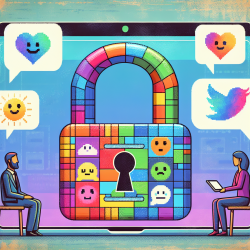In the realm of online therapy services for schools, practitioners face unique challenges that can significantly impact their effectiveness. Drawing insights from the research article "Experiences of Work-Related Stress Among Female Healthcare Workers During the COVID-19 Public Health Emergency: A Qualitative Study in the United Arab of Emirates" by Hijazi et al., we can better understand and address the stressors faced by healthcare professionals. This understanding is crucial for improving the quality of online therapy services for children.
The study by Hijazi et al. identified three primary themes of work-related stress among female healthcare workers during the COVID-19 pandemic:
- Sources of Work-Related Stress: Heavy workload, fear of infection, and uncertainty about COVID-19 were significant stressors.
- Challenges of Working During the Pandemic: Changes in care organization, the need for personal protective equipment (PPE), witnessing patient suffering, and work-life imbalance were highlighted.
- Coping Strategies: Supportive work environments and self-management strategies such as time management, positive thinking, and practicing healthy habits were effective.
For practitioners in online therapy, these findings offer valuable insights:
1. Managing Workload
Just as healthcare workers experienced increased workloads, online therapists may face high caseloads, especially during crises. Implementing structured schedules and delegating tasks can help manage this load effectively.
2. Addressing Fear and Uncertainty
Providing clear, evidence-based information about therapy protocols and potential challenges can reduce fear and uncertainty. Regular training and updates can empower therapists to feel more confident and secure in their roles.
3. Creating Supportive Environments
Fostering a supportive work environment is crucial. Encourage open communication among team members, provide access to mental health resources, and ensure that therapists have the tools they need to succeed.
4. Encouraging Self-Management Strategies
Promote self-care among therapists by encouraging practices such as regular exercise, healthy eating, and mindfulness. Offering flexible work arrangements can also help therapists balance their professional and personal lives more effectively.
By integrating these strategies, online therapy practitioners can enhance their resilience and effectiveness, ultimately leading to better outcomes for the children they serve. The lessons learned from the experiences of female healthcare workers during the COVID-19 pandemic are invaluable for improving the quality of care in any setting.
To read the original research paper, please follow this link: Experiences of Work-Related Stress Among Female Healthcare Workers During the COVID-19 Public Health Emergency: A Qualitative Study in the United Arab of Emirates.










